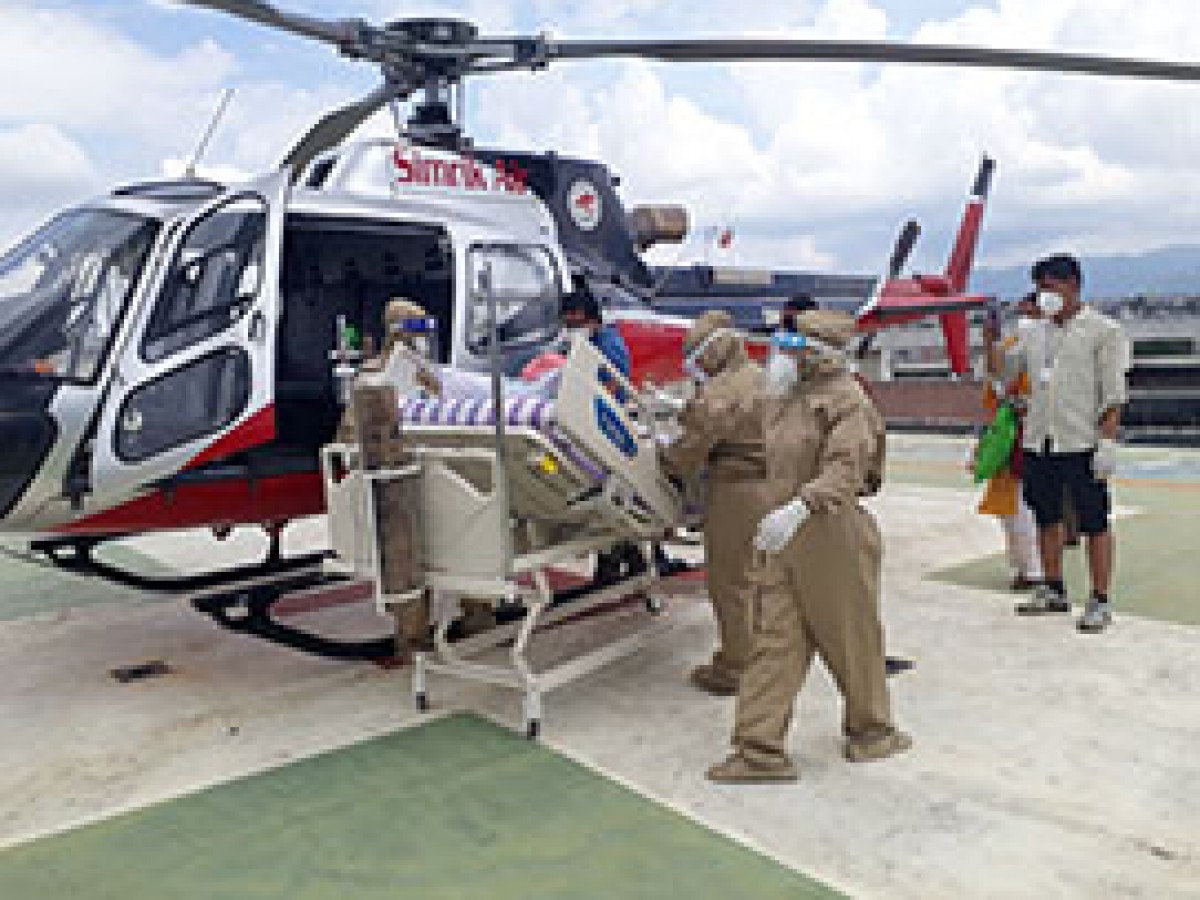- Our Hotlines
- +977 9801247970
- +977 9801247971
- +977 9801247972
Pre Hospital Care

Pre Hospital Care
Pre-hospital emergency medicine (abbreviated PHEM), also referred to as pre-hospital care, immediate care, or emergency medical services medicine (abbreviated EMS medicine), is a medical subspecialty which focuses on caring for seriously ill or injured patients before they reach hospital, and during emergency transfer to hospital or between hospitals. It may be practised by physicians from various backgrounds such as anaesthesiology, emergency medicine, intensive care medicine and acute medicine, after they have completed initial training in their base specialty.
Pre-hospital trauma assessment is a set of skills used by emergency medical services technicians to analyze all threats to life that a patient could suffer due to a trauma incident. Pre-hospital trauma assessment is broken into two major types: basic trauma assessment and advanced trauma assessment. The basic assessment is provided by first responders and EMTs. The advanced assessment is provided by a paramedic.
Approaching and sizing up a trauma incident scene is one of the most important primary steps that a pre-hospital care provider carefully does. Within a critical trauma incident, seeing hazardous material and traffic in an uncontrolled environment is expected. These factors can cause life-threats for providers, coworkers, and bystanders. Therefore, controlling all these life-threats is initially accomplished even before patient contact.
After scene management, a pre-hospital care provider gets a general impression of the scene. A general impression is discovered by evaluating the mechanism of injury. For example, in a car accident, mechanism of injury is detected by estimating the speed at which the collision occurred, looking at the amount of damage, and looking for other factors that may affect the mechanism of injury, such as airbag deployment.
© Copyright 2025NMMF. All rights reserved.


